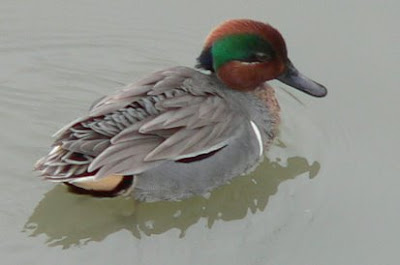
I picked my daughter up at the school where she teaches and then drove to her house where I would fetch Sweet Grandson (SG) for a weekend at my house. My daughter told me SG had been asking questions about college, wanting reassurance that she and his father wouldn't change their phone number or move while he was away at school. "He's only six! How can he be worrying about such things?" I asked.
She said the topic had come up when he'd asked how his parents had come to be married. They explained they'd met in college.
I walked into their house with my backpack so I could change out of the suit I had worn to an interview that day. SG asked, "Nonna, why do you look pretty?" His mother explained, "She had a job interview today." SG: "Do you have to look pretty when you have a job interview?" I expected more questions about job interviews once he was in the car and we were headed to my house. The first thing he asked, though, was if I had visited Mommy when she was in college. I said I had made the trip from Madison, Wisconsin, to a small town in Iowa regularly. "Were you so excited to see her, Nonna?" I said I was. "My mommy and daddy will visit me when I'm in college," he said. "Will you come, too, Nonna?" I said I would.
The topic changed to what we'd have for dinner. Periodically he'd ask, "Are we still in Beaverton?" or "Are we in Hillsboro yet? Mommy's school is in Hillsboro." Once we reached Forest Grove, he announced, "I'm going to go to college in Forest Grove."
"You can go to Pacific University," I said. He and I often take walks around the campus in search of acorn woodpeckers.
"Is Pacific University a college?" he asked.
"It is," I replied. "There are lots of colleges in Portland you can go to."
"I want to go to college at Pacific University," he said. "I can walk to your house when I'm at college, Nonna!" he said. "I can eat lunch at your house every day!"
Having that major decision out of the way, he enjoyed dinner, played with trains and then got ready for bed. We woke up Saturday to snow. While he ate breakfast, I put my sheets in the washing machine. "Did you pee your bed, Nonna?" he asked. I explained I washed my sheets every Saturday morning even without pee.
We went outside and threw snowballs at each other. He giggled and threw until he announced he was cold. We went inside and made oatmeal cookies. "I'm glad I don't have a sister or a brother," he said. "I don't have to share the beaters."
I asked him if he shared the beaters when friends came over. He said he did. I asked him if he felt good when he shared. He said he did . But he was still glad he didn't have to share all the time.
After lunch, we went to my neighbor's house where he ate about 14 of her cookies, and made a city out of Legos. He pointed out where the parks and schools were. Then it was back to my place where we read some stories. I asked him what he wanted for dinner. "My stomach doesn't feel very good, Nonna." We had chicken soup and watched Babe. It was a new movie for him, with more questions than I have time to record here.
Sunday morning we took a walk around Pacific. He wants to be in plays when he's in college, and asked if Pacific had a theater with a stage. I told him there were at least two that I knew of. The buildings were locked, however. We looked for woodpeckers. I pointed out a large sequoia. "Wow. That's a big tree at my college," he noted.
Mommy and Daddy came to get him while he was eating lunch. "I'm going to college here, " he announced. My daughter took me aside. "Thank you so much. We slept 12 hours Friday night. It's such a gift when you take care of him."
After they left, I vacuumed cookies crumbs and loaded the dishwasher before answering some emails and going to a meeting. I knew he was the gift, and after I came home from the meeting, I'd miss him.



